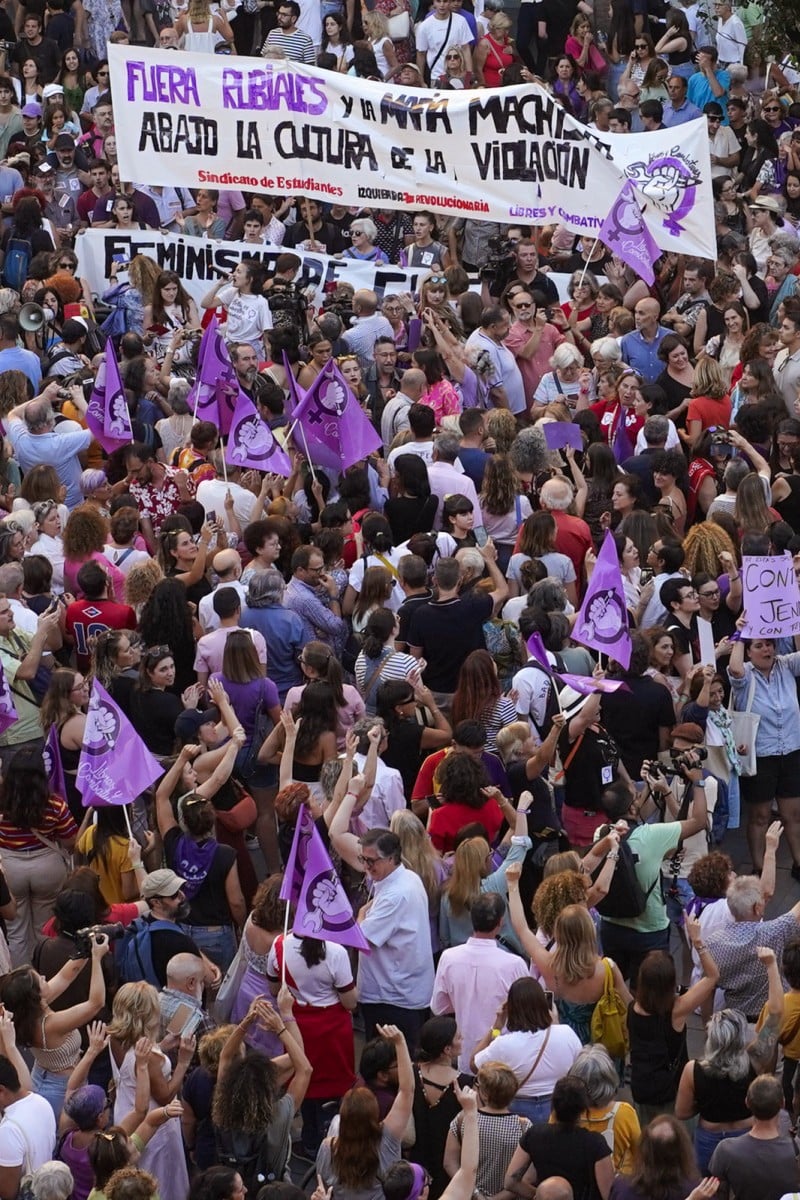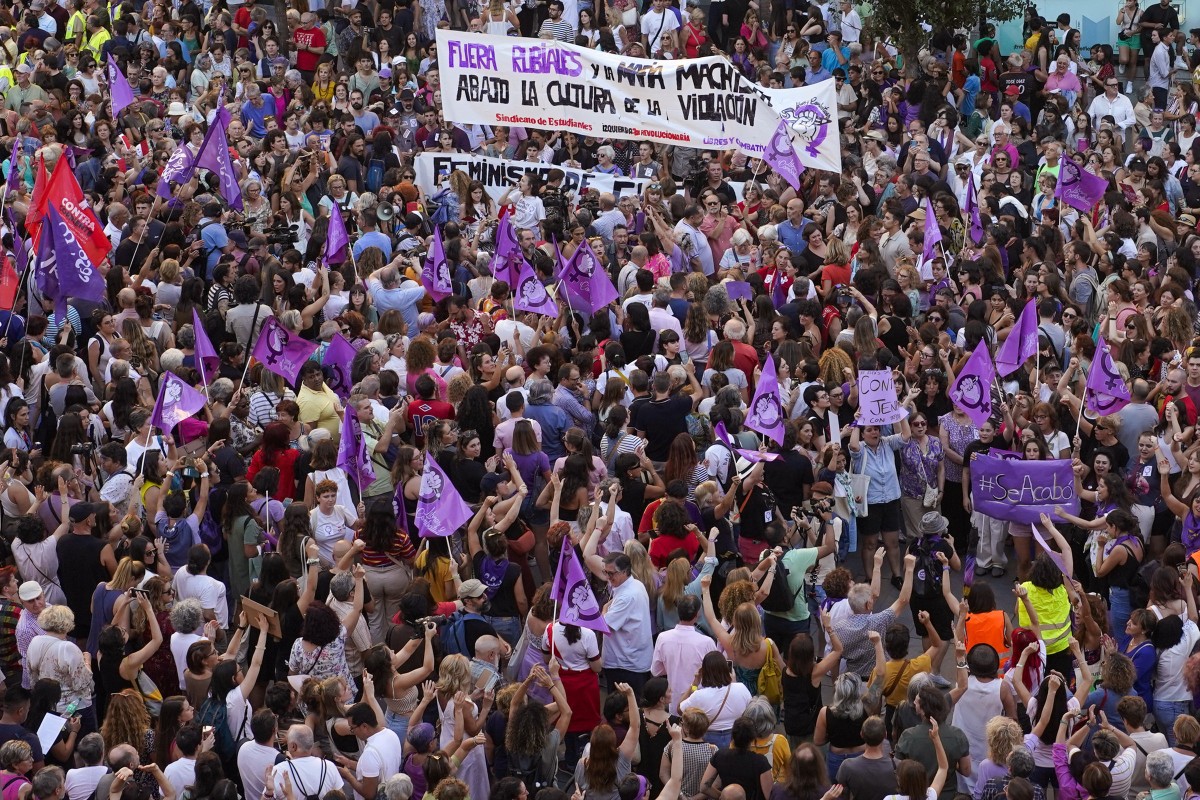
- President of the Royal Spanish Football Federation kissed Spanish player Jenni Hermoso without consent following win, leading to demonstrations
- Summer of 2023 named hottest on record as experts warn of worsened air quality, more extreme weather due to climate change
 Demonstrators gather in Madrid for an anti-Rubiales protest and to support Spanish player Jenni Hermoso on August 28, 2023. Photo: AP
Demonstrators gather in Madrid for an anti-Rubiales protest and to support Spanish player Jenni Hermoso on August 28, 2023. Photo: APHave some thoughts on this issue? Send us your response (no more than 300 words) by filling out this form or emailing [email protected] by September 13 at 11.59pm. We’ll publish the best response next week.
Thoughts from last week
Amelie Chin, Sha Tin College
Gender equality in sports has been a heavily debated topic for many years. The industry has long been dominated by men, and women were not even allowed to participate in many sports for a long time.
Though some progress has been made in recent years, women still face barriers such as gender discrimination, sexual harassment, and a significant gender pay gap.
A recent incident at the Fifa Women’s World Cup in Sydney last month has reignited this debate and sparked discussion. At the medal ceremony, Spanish World Cup winner Jenni Hermoso was grabbed and kissed on the lips by Luis Rubiales, president of the Royal Spanish Football Federation.
In an Instagram post by Hermoso published shortly after the event, she shared that she felt “vulnerable and a victim of an impulse-driven, sexist, out-of-place act without any consent on my part”.
An overwhelming number of protesters gathered in Madrid last month to show their support for Hermoso, calling for Rubiales to take responsibility for his act and demanding his resignation.
However, Spain is divided on the issue: while many protesters stand with Hermoso, others have defended Rubiales, asserting that the kiss was innocent and consensual.
The kiss, and the controversy that has followed, shows there is still a long way to go to ensure gender equality in sports and empower female athletes. We must secure equal opportunities for female athletes by boosting the media prevalence of women’s sports, reducing the gender pay gap, and increasing the number of women in sports leadership roles. I hope that one day, female athletes will be able to succeed in their sport free from any form of inequality.
World Cup kiss starts debate on gender equality in sports
Observe and read
The summer of 2023 was the hottest on record, according to data from the European Union Climate Change Service released last Wednesday.
Temperatures from June to August surpassed previous records by a large margin, with an average temperature of 16.8 degrees Celsius – 0.66C above average.
Last month was also the hottest August globally, the third month in a row to set such a record, following the hottest ever June and July.
August is estimated to have been around 1.5C hotter than the pre-industrial average. Limiting the global temperature increase to 1.5C is a central pledge of The Paris Agreement, an international initiative to fight climate change, adopted by 196 countries in 2015.
“The scientific evidence is overwhelming. We will see more climate records and more intense and frequent extreme weather events until we stop emitting greenhouse gases,” said Samantha Burgess, head of the European Union’s Copernicus Climate Change Service.
The World Meteorological Organisation (WMO) also warned that more frequent and intense heatwaves are generating a “witch’s brew” of air pollution that shortens human lifespans and damages other life forms.
“Heatwaves worsen air quality, with knock-on effects on human health, ecosystems, agriculture and indeed our daily lives,” WMO chief Petteri Taalas said in a statement.
Record-high global sea surface temperatures played a major role in stoking heat throughout the summer, with marine heat waves hitting the North Atlantic and the Mediterranean Sea.
With four months left in 2023, this year is the second-hottest on record, slightly behind 2016.
Reuters
Research and discuss
-
How does climate change affect the environment and our daily lives?
-
What are some ways to help slow or stop climate change?